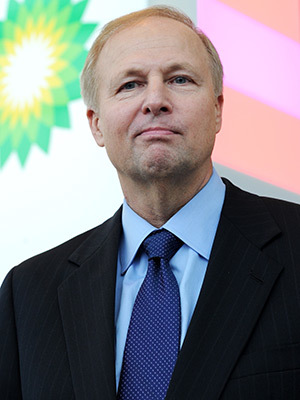
Sir Martin Sorrell, the boss of advertising giant WPP, has defended his £63 million pay package, insisting “if WPP does well, I do well”.
The founder and chief executive of the firm, speaking after BP faced a humiliating shareholder rebellion over executive pay, said: “Most of my wealth, if not all of it, is and has been for the last 31 years tied up in the success of WPP. So if WPP does well, I do well, and others in the company do well. If we do badly, we suffer.”
In March, WPP said annual pre-tax profits rose 2.8% to £1.49 billion and Sir Martin pointed out that his pay plan – which consists of a £1.15 million salary and a share package worth £62.78 million – was “voted through by shareholders by considerable majorities”.
“The fact is, those plans were put in place, they were voted on, they were approved. The only reason the plans have resulted in what they’ve resulted in is because the company has done well,” he said.
“Over the past four or five years, the company’s market cap has grown by about £10 billion. So if it’s our nostra culpa for having a successful company … I make no apologies for that. The better the results, the better the people do.”
His comments come during a period of increasing tension between investors and boards over pay. On Thursday, almost 60% of BP shareholders rejected the oil giant’s remuneration report, which awarded boss Bob Dudley £13.8 million, in a non-binding vote.
Shareholder lobby group PIRC dubbed the award “excessive”.
In 2012, Sir Martin himself was embroiled in the so-called shareholder spring, which saw nearly 60% of WPP investors reject his £6.8 million pay packet.
Asked if he feared another rebellion ahead of this year’s AGM in June, Sir Martin said: “We have shareholder votes every year. It is what it is. Shareholders will decide. It’s very democratic. We’re always engaged with shareholders with anything and everything.”
The boards of firms such as Persimmon, HSBC, AstraZeneca, Reckitt Benckiser and Centrica are all gearing up for potential rebellions over pay at their AGMs.
On the EU, Sir Martin, who backs the UK remaining, said employment in Britain would suffer if the electorate votes for Brexit, while job prospects in Europe would be boosted.
He said: “In our case, the prospects for incremental employment if we came out would be reduced in the UK and increased in France, Germany, Italy and Spain. Most of the City firms I talk to say that, if we come out, the UK will lose employment and jobs will be shifted in City firms to continental Europe.
“If we’re out of Europe we will lose influence in those markets and indeed in Brussels. So if we came out, we (WPP) would have to reassert our activities into continental Europe, we would invest more in continental Europe to establish a stronger presence.”
Recommended for you
